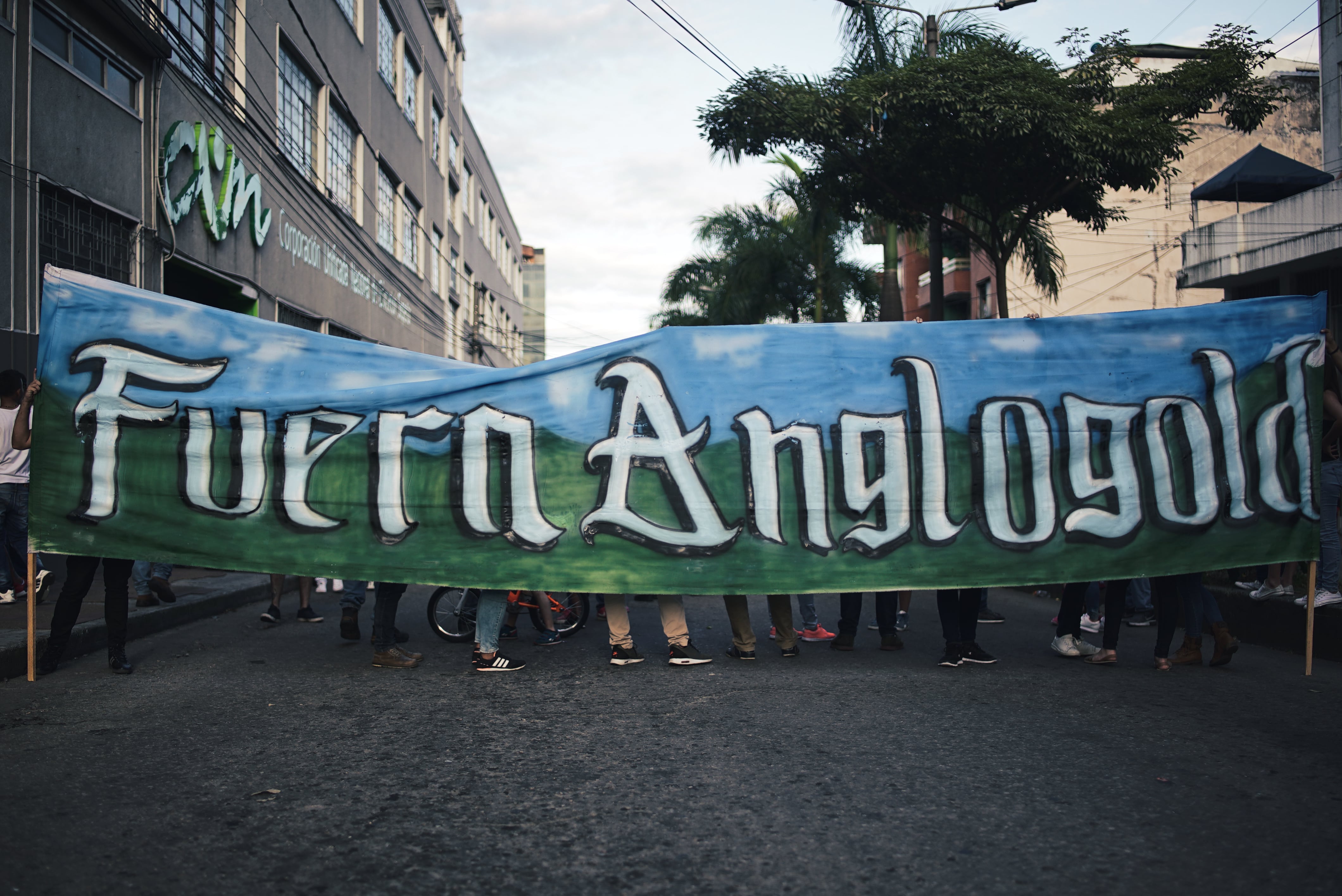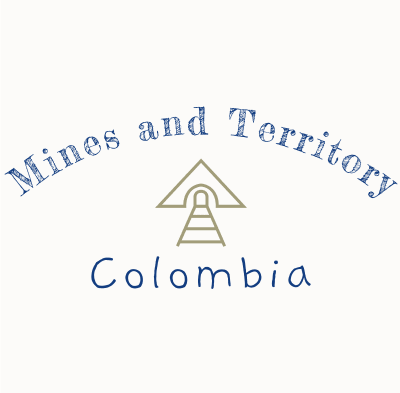From the polls to the tribunal: The farmers of Cajamarca suing mining multinational Angolgold Ashanti
From the polls to the tribunal: The farmers of Cajamarca suing mining multinational Angolgold Ashanti
Cajamarca, Colombia
Karlijn Van den Broek, 5 June 2019
The farming community that voted out multinational Anglogold Ashanti of their territory two years ago, is now taking the fight to court.
In March 2017, the people of Cajamarca voted against mining in their region in a Consulta Popular (popular referendum). Two years later the same community is going to court to continue their fight for Anglogold Ashanti still owns various mining concessions in the region. And to ensure their absence for once and for all, the farmers are suing the company and the National Mining Agency to nullify the still existing mining concessions.
In Cajamarca, all seems quiet and peaceful. Farmers on the hill work their land, no machinery involved. It is a hard job, but they would not trade it for the world. The fertile soil of Cajamarca makes it a very rewarding region for farming: ‘Anything grows in Cajamarca.’
Looking over Cajamarca, the impressive waterfall Chorros Blancos provides water for the citizens of the village center. Many other small water springs guarantee water to the farming families’ right to their land. The Wax Palms Forest and the Machin Volcano in Toche guard Cajamarca on the one side, and on the other side the Páramo of Anaime can be found. If you ask the citizens, they will tell you they are proud to live in Cajamarca, that this land is incredibly beautiful and precious. And any visitor would have to agree with them.
However, the people of Cajamarca have struggled a lot to get where they are today. From the beginning of the settlement, violence has been brought to the region, from colonization to the period of violencia and later the armed conflict. When after hundreds of years of war, Colombia, and thus Cajamarca, was finally beginning a new era of ‘peace’, it was only for a short time until a new threat arrived in Cajamarca: Extractivism.
More than ten years ago, the Colombian government gave mining concessions to the South-African gold mining multinational Anglogold Ashanti, who with their La Colosa mining project would open the biggest open pit mine in Latin America.
The village however, came together to defend their farming lands, their precious water sources and the future of their children. On the 26th of March 2017, Cajamarca organised a Consulta Popular, a binding mechanism of public participation stated by the Colombian constitution, where 98% of voters voted against mega mining in their territories.
The result of the Consulta Popular, a Cajamarca free of mining activities, was later established in a municipal agreement.
The decision of the people of Cajamarca is legally binding and thus has to be respected by both the multinational as the national government.
However, the National Mining Agency of Colombia has continued administrative actions regarding the existing mining concessions, without consulting nor informing the community.
There are still three current mining concessions in the municipality of Cajamarca. Therefore, the decision of the people of Cajamarca has neither been respected nor implemented until now.
The farmers of Cajamarca are demanding the nullification of the three current mining concessions in the municipality. They invoke the legal principle of objeto illicit sobreviniente: the mining concessions have to cease to exist since they are incompatible with the choice of the community of Cajamarca to prohibit mining. Following Colombian law, a contract needs to have an object that complies with the legal and constitutional requirements. The subject of the mining concessions is illicit and impossible to accomplish. The subject was licit when the concessions were granted, yet, after the consulta popular, it is no longer the case.
With the legal action the farmers of Cajamarca hope to finally achieve the full respect and execution of the decision that the community took in March, 2017, prohibiting mining in their region.
Suing a multinational is not for the light hearted. In Colombia, environmental defenders that are struggling to remain in their lands despite of corporate interests, have been the target of threats, human rights violations and killings. Moreover, the legal road is always a very long and tiring one. Nevertheless, the community of Cajamarca knows what they want: A healthy and thriving farming community, with clean waters and lush mountains. This court case, just like the countless manifestations and the consulta popular before them, is the people of Cajamarca shouting:
“El Agua vale mas que el oro, Anglogold Ashanti Fuera del Pais”
























